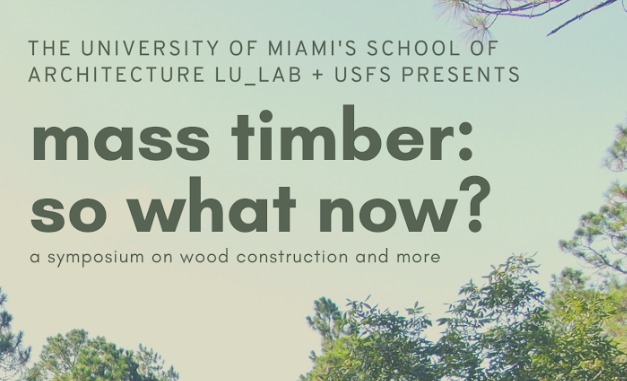Note: Due to technical and recording issues, this presentation was unfortunately not recorded. Please see below for presentation details, and Lindsey Wikstrom's bio.
PRESENTATION DETAILS: Given their production of oxygen, and thousands of years of providing fuel and building materials, forests are fundamental to life and civilization. Forests are and have been synchronistically transformed and interpreted by human thought; you could say that forests are made, whether they are disturbed or not. With the emerging and essential deployment of mass timber, there is an opportunity to imagine new relationships, experiences and typologies between urban and forest environments.
Lindsey Wikstrom is the Founding Principal of Mattaforma and an Adjunct Assistant Professor at Columbia Graduate School of Architecture, Planning and Preservation. Previously, she contributed to projects with The Living, Studio Gang, Aranda\Lasch, and Wendell Burnette Architects. She holds an M.Arch from Columbia University, where she was awarded the Charles McKim Prize, Visualization Award, and Avery 6 Award. Lindsey is also the recipient of the SOM Prize. Her research on mass timber and healthy building materials has been published in Embodied Energy and Design: Making Architecture between Metrics and Narratives, Broken Nature: Design Takes on Human Survival, Faktur, Cite, e-flux, Urban Omnibus, and others. In 2022, her Advanced IV M.Arch studio Fringe Timber: An Ethics of Care in a Vertical Commons received an honorable mention for the ASCA Timber Education Prize.




